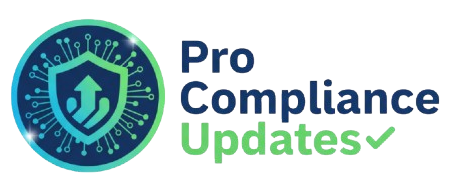While performance expectations for companies are increasing more than ever, talent mobility is also increasing at the same time and pace. Most companies with more than 500 employees have already taken some steps to begin a succession planning process for senior management positions - yet have they been 100% effective at making sure that the right talent is ready at the right time? One of the key goals of any succession planning effort should be that there is no “hiccup” in seamlessly executing the business plan, at least from a talent perspective.
This webinar will offer lessons we have learned, as succession planning practices mature, that could be helpful in increasing the effectiveness of your company’s succession planning efforts.
AREA COVERED
- Businesses cases which outline Succession Plans
- Best practices & guiding principles
- Moving from a simple to a systematic approach
- Understanding talent reviews
- Running critical job risk assessments
- How to integrate succession planning with business planning
- The challenges and pitfalls that come with succession planning
- The metrics used
- Your questions
LEARNING OBJECTIVES
- Learn whether to adopt a “build or buy” strategy
- Understand the process flow that comes with succession planning
- Efficiently apply the succession process
- Identify what steps are needed for assessment and review
- Identifying high potential talent
- Follow the succession check list
- Know which competencies are needed and should be prioritized
- Work with key roles for strategy implications
WHO WILL BENEFIT?
- HR professionals
- OD managers
- Leadership Development professionals
- Businesses cases which outline Succession Plans
- Best practices & guiding principles
- Moving from a simple to a systematic approach
- Understanding talent reviews
- Running critical job risk assessments
- How to integrate succession planning with business planning
- The challenges and pitfalls that come with succession planning
- The metrics used
- Your questions
- Learn whether to adopt a “build or buy” strategy
- Understand the process flow that comes with succession planning
- Efficiently apply the succession process
- Identify what steps are needed for assessment and review
- Identifying high potential talent
- Follow the succession check list
- Know which competencies are needed and should be prioritized
- Work with key roles for strategy implications
- HR professionals
- OD managers
- Leadership Development professionals
Speaker Profile
 Dr. B. Lynn Ware
Dr. B. Lynn Ware
Dr. Ware is an Industrial/Organizational Psychologist and CEO of Integral Talent Systems, Inc. (ITS)ITS is a global technology enabled talent management consulting firm specializing in bringing the science of talent management to the bottom line.ITS is a pioneer in the field of attracting and retaining top talent, as the company was the first consulting firm dedicated to this workplace issue that began emerging in the U.S. during 1996 and has since become a global concern.Dr. Ware is frequently engaged with corporate clients to provide guidance on how to create “employer of choice” environments, so that they can attract and keep the best talent in their respective industries.ITS provides this guidance …
Upcoming Webinars

Leadership: Strategic Planning and Decision Making

Writing Techniques for Auditors and Risk Management Profess…

Language is Code - Intro to AI - Generative AI - ChatGPT an…

Gossip-Free: Leadership Techniques to Quell Office Chatter

Do's and Don'ts of Giving Effective Feedback for Performanc…

Women’s Hostility to Women at Work: Myth or Reality

4-Hour Virtual Seminar on Audit Proofing your Payroll Opera…

Do's and Don'ts of Documenting Employee Behaviour, Performa…


Retention Starts Here: Stop Losing Your Critical Talent and…


Practice Safe Stress ™: Preventing Burnout While Building R…

Impact Assessments For Supplier Change Notices

Cleanroom, Microbiology and Sterility Assurance Practices f…




Thriving in a Hybrid Workplace: Keys to Leadership and Team…

2-Hour Virtual Seminar on DeepSeek vs ChatGPT AI for CPAs a…

Understanding EBITDA – Definition, Formula & Calculation

FDA Regulation of Artificial Intelligence/ Machine Learning

Construction Lending And Real Credit Administration: Evalua…

Sunshine Act Reporting - Clarification for Clinical Research

How the OBBB Act will Impact Immigration Enforcement! Preve…


2-Hour Virtual Seminar on Outlook - Timesaving Tips and Tri…


Leadership Upskilling: Don’t Just Manage; Lead with Influen…

H-1B Visa Updates and Employer Strategies for 2026

Aligning Your HR Strategy with Your Business Strategy: A Ro…

HIPAA 2025 – Major Changes, Latest Rulings & Guidance

AI for Excel Professionals: Enhancing Productivity with Cha…

Dealing With Difficult People: At Work & In Life

Understanding Accounting for non - Accounting professionals



Excel Power Skills: Master Functions, Formulas, and Macros …
